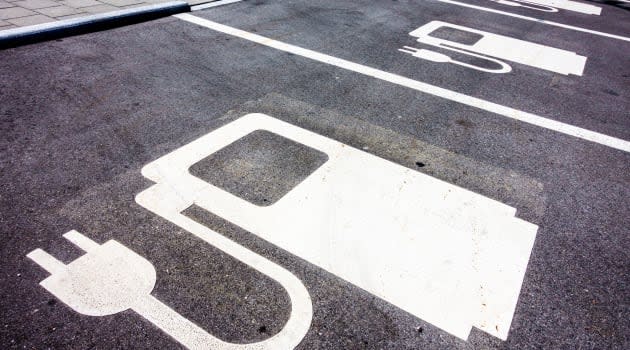Americans Lag Behind in Hybrid Vehicle Adoption

While Americans are among the most dependent on cars in the world, they lag behind other countries in the adoption of hybrid vehicles and other new driving-related technologies, a new survey shows.
Global consulting firm OC&C Strategy Consultants surveyed 10,000 consumers in the United States, China, France, Germany and the United Kingdom to gain insight into consumer preferences about the latest automotive industry advancements. The survey revealed differences in opinion across countries about emerging technology and car ownership. Americans were found to be largely hesitant about electric/hybrid vehicles and autonomous vehicles and loyal to car ownership over car-sharing or short-term renting.
A sizable percentage of Americans would not consider buying an electric vehicle (EV) or hybrid, the survey found. Only 53% of U.S. consumers said they would consider buying one compared with 94% of Chinese consumers and 77% of French consumers. On top of that, only 10% of consumers from the U.S. said their most recent vehicle purchase was an EV/hybrid car.
Survey respondents gave a number of reasons for their wariness about hybrid cards. In the U.S., the top concern was the range of such vehicles — the distance they can travel between charges — which was a concern cited by 59% of respondents. Other common concerns included:
Access to charging stations away from home, cited by 56% of respondents
The cost to purchase hybrid vehicles, cited by 47% of respondents
Access to a charging station at or near home, cited by 41% of respondents
A lack of government incentives could also play a role in the unpopularity of hybrid vehicles in the U.S. In California, where nearly half of all EVs are sold in the U.S., the state offers strong financial incentives to EV owners, the study shows.
Hybrid vehicles aren’t the only auto-related advancement that Americans are failing to embrace. Autonomous, or self-driving cars, also have a relatively small following. In fact, 70% of American respondents said they would not trust an autonomous vehicle, compared with 72% of Chinese consumers who said they would trust one.
Americans are also not very bullish about the idea of car-sharing and other alternatives to getting around, such as short-term renting and taxis. In fact, car ownership is important to many Americans, with 64% saying they expect to own a car in the future — a higher percentage of respondents than all other countries except China. Additionally, 84% of Americans said that having a car was “essential to getting around,” which is a higher percentage than those in other countries surveyed.
For those who are set on car ownership, a lot of factors go into choosing the car you buy. Obviously, you want to look at a car’s performance record to see how it stacks up on the road, as well as whether it has the features and qualities that are most important to you. However, you should also understand your financing options and the type of loan you would qualify for. It’s also a good idea to be aware of what cars are the least expensive to insure. If you’re considering an electric vehicle, you should read up on how having an electric car could affect your insurance rates.
